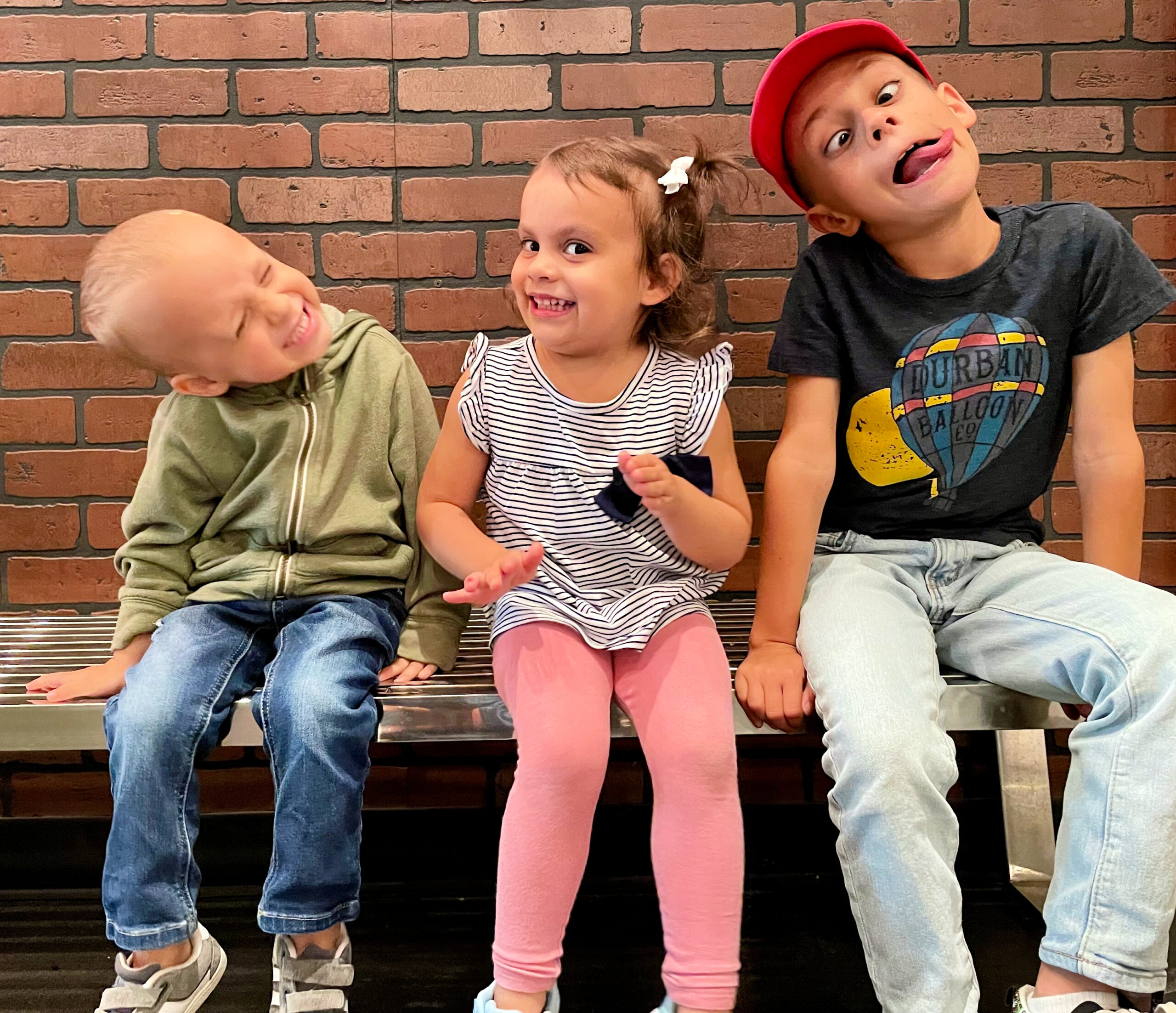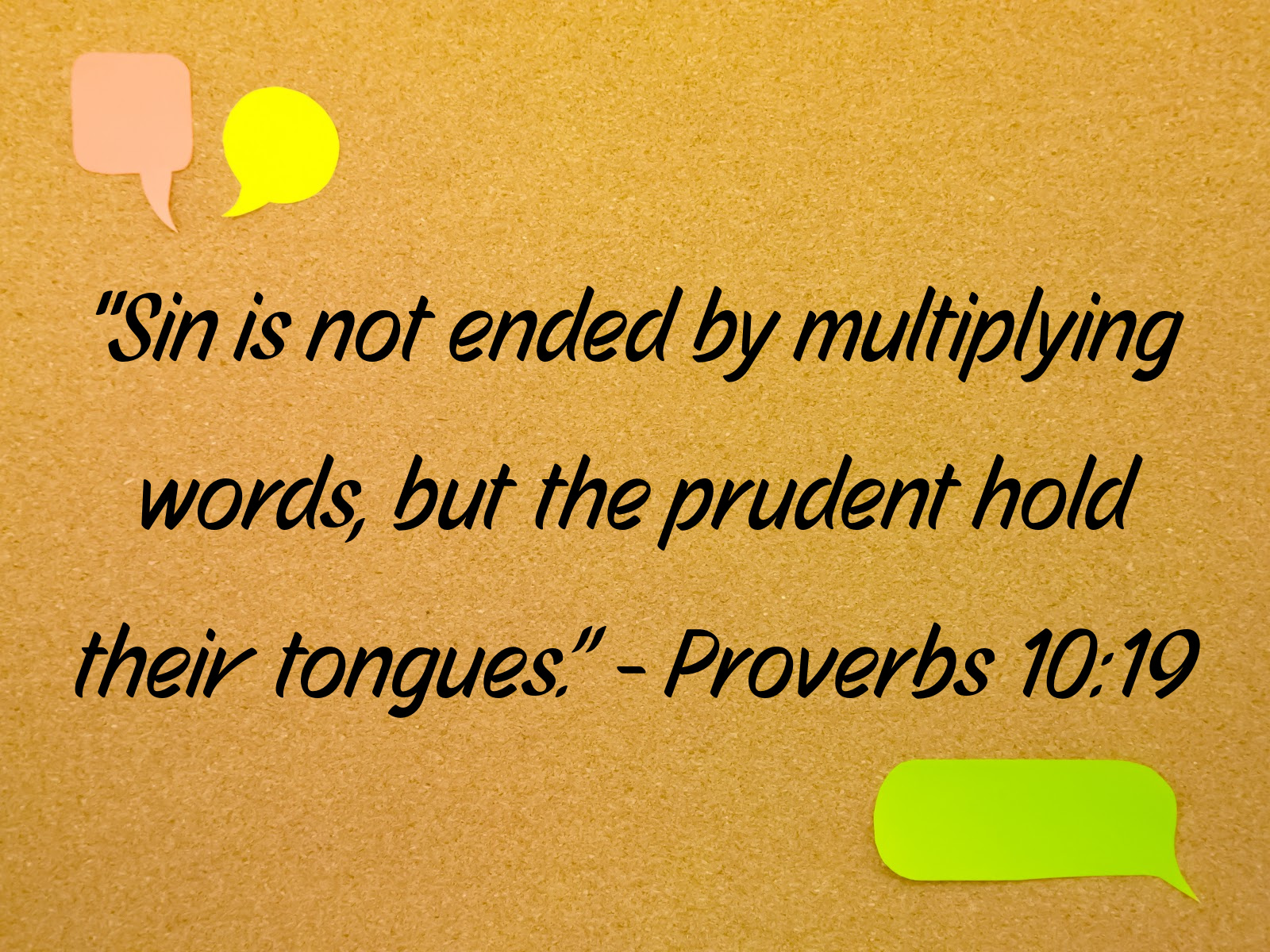I have never washed any of my kids’ mouths out with soap, but I can’t say that I haven’t been tempted. They aren’t to the age of using profanity just yet, but those sweet little mouths of theirs are no strangers to salty-adjacent language, from sassing and squabbling, to name-calling, fibbing, tattling, and complaining. And while we have not resorted to literal tongue-scrubbing, their verbal misbehaviors do not go ignored and are appropriately addressed.
It’s easy to recognize the sinful nature of those language behaviors. Other language sins are more insidious—less obviously identifiable as sinful, but equally destructive and in need of correction.

I have child psychologists Sissy Goff and David Thomas to thank for drawing my attention to one particularly harmful language pattern that was not really on my radar. On a recent episode of their podcast, Sissy and David discussed a growing tendency among their young patients towards exaggeration, specifically as it pertains to their emotions and relationships. The kids and teens they see in their practice no longer talk about being anxious; now they refer to chronic “panic attacks.” These patients do not express sadness, but emphasize their “severe depression.” Their friendships are described as irredeemably “toxic,” and peers are perpetually labeled “narcissists” and “sociopaths.”
This shift towards hyperbole is understandable. Big emotions are a staple of childhood and adolescence, and in a world that has grown increasingly loud, it makes sense that kids would feel the need to shout their emotions in order to be acknowledged, seen, and heard. Our culture’s growing emphasis on victimhood as identity also feeds into kids’ felt need for their emotions to be perceived as BIG PROBLEMS with diagnosable labels. Today’s youngest generations have been conditioned to equate obvious brokenness with authenticity and relatability; it is no wonder that they flock to these labels like a Boomer teen to a beehive hairdo.
This increase in exaggeration makes sense; that does not make it right. In their podcast, Sissy and David reminded parents how important it is for us to walk our kids through their difficult emotions without feeding into the extremeness. We can acknowledge their anxiety without (mis)labeling it a panic disorder; we can sit with them in their tears without conceding their self-diagnosis of depression; we can agree that their friends have acted unkindly without conceding to labels of toxicity or sociopathy.
It’s not that those severe emotional disorders don’t exist, but such drastic terms are not ones to be used recklessly. The overuse of pathological labels for commonplace problems keeps us from recognizing the really big issues when they do arise, and it perpetuates a cycle of emotional dysregulation and confusion for young people still learning their own behaviors, emotions, and relational dynamics.
Thankfully, my kids have not resorted to using DSM diagnoses in their self-expression, but I’m glad to have this potential problem on my radar. . . if not for them, then for ME, as a reminder to tone it down a notch in expressing my own feelings. I sense my personal tendency to exaggerate a painful symptom or difficult emotion, and that is not an example I want to set for my kids.

The problem of hyperbole extends beyond the spheres of parenting and emotions. What begins in our homes and with our own self-expression bleeds out into the world: I think we have all noticed a heightening of extreme rhetoric in recent years. Advertisers, news outlets, and social media pundits are growing more intense in their words; this translates to more extreme ideology, more hostility, more confusion about who and what to believe. . . Our abandonment of reasoned, precise language has left us all hyped up on unhealthy sentimentality and irrational emotionalism.
Our words matter. To put a finer point on it: precise words matter. Plain speaking may not garner many page views or rack up votes at the ballot box, but it does set the stage for healthier minds, balanced moods, and whole hearts.
We can start small by teaching our kids how to express themselves clearly, truthfully, and without exaggeration. We can model the use of accurate language and reasonable self-expression. As we quiet our own language and reduce the frenzied emotional tone in our homes, we are pushing up against the cultural loudness in ways that seem insignificant but can make all the difference. In a world of inflated speech, our grounded words will stand out and stand strong.
You might enjoy Atlas Of the Heart by Brene Brown.
It’s on my list!